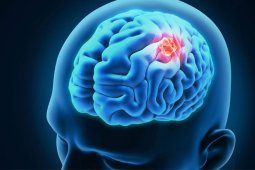Brain Tumor Treatment Protocol- World Brain Tumor Day
Apr 19, 2022
Treatment for brain tumour depends on type, size, location and symptoms caused by the tumour. A brain tumour causes symptoms depending on the type,size and location. It may cause headache, vomiting, loss of vision, loss of smell or hearing, seizures, limb weakness, memory loss, loss of speech, loss of coordination of movement, hormone excess or loss in case of pituitary tumours etc.
Treatment depends on tumour location:
When located in areas of brain which control our limb movements, speech, vision, memory, hearing, etc. they cause respective dysfunction. Tumours may cause dysfunction by pressure over the functional area or by its infiltration. Tumor removal will improve the function in the former whereas permanent disability will be caused by tumor removal in the latter case.
Types of Brain Tumours:
Brain Tumours broadly may be divided into primary and secondary. Treatment of primary brain tumours is dealt with here. Primary brain tumours may arise within the brain substance like neuro epithelial tumours (astrocytoma, oligodendroglioma, ependymoma,choroid plexus tumours, tumours of pineal gland, embryonal tumours etc). Tumours may arise outside the brain substance like those arising from meninges (meningioma), skull, cranial nerves (schwannomas). Then there are cysts and tumor like conditions like epidermoid/dermoid, colloid cyst, craniopharyngioma, etc.

Treatment Protocol:
Mainstay of brain tumour treatment is surgery. Surgery is aimed at complete removal if complete removal is not likely to cause dysfunction otherwise partial removal is done. For example complete surgical removal of a large tumor in the brain substance also infiltrating the motor area (the area of brain controlling limb movements)will cause complete one sided paralysis. So it may be desirable to partially remove the tumour sparing the part in the motor area. But if the tumour is arising from meninges (meningioma)and just pressing over the motor area then the tumour can be completely removed resulting in improvement in paralysis of the affected limbs. Surgery is followed by radio therapy if the brain tumour is malignant.
- Some brain tumours are preferably treated by radio therapy like brain stem gliomas
- Some small brain tumours like vestibular schwannomas are treated by gamma knife and surgery may be avoided.
- Some small low grade tumours in critical functional areas of brain are treated by observation alone.
To conclude, Mainstay of brain tumour treatment is surgery. Radiotherapy is another modality. Type and extent of treatment depends on several factors which should discussed with the patient and his/her family.









